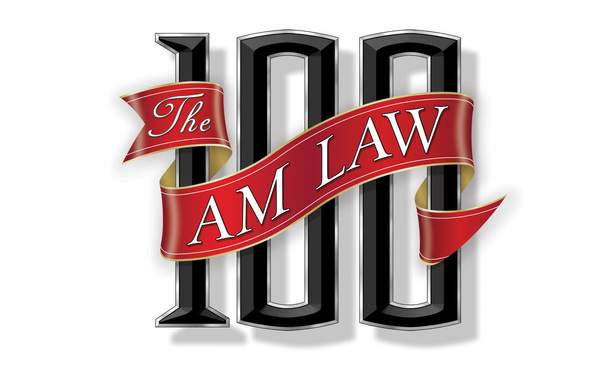
Revenue per lawyer dropped by $20,000, or 2 percent, from $995,000 to $975,000.
Alexander would not name the matters that caused the revenue shortfall, though he said one comprised about half of the lost revenue.
That may have been the firm’s representation of AT&T Inc. in its acquisition of satellite provider DirecTV. Another major project lost related to pelvic mesh lawsuits, after the main partners who handled litigation and mediation related to the cases left Arnold & Porter in May to form a boutique.
A third possible contributor to the shortfall: BP PLC’s $18.7 billion settlement for environmental claims related to the Deepwater Horizon oil spill. Arnold & Porter had acted as BP’s primary environmental counsel since 2010.
In 2015, the firm’s profits per partner shrank by $175,000, or a 12.6 percent decrease, to $1.21 million from $1.385 million in 2014.
As a 70-year-old Washington-based law firm largely built around litigation and regulatory work, Arnold & Porter may have seen some revenue setbacks related to industrywide lack of growth and increased competition in the D.C. legal market. The firm doesn’t have as large of a corporate-transactions practice—which boomed for many in 2015—as other firms. That’s an area where Alexander said he hoped to expand.
Previously the firmwide managing partner, Alexander took over as chairman Jan. 1, when Thomas Milch stepped down after nine years in the position. Partners Anne Davis and Michael Daneker are now firmwide co-managing partners.
Alexander said he discussed the financial situation at the partnership retreat earlier this month in Washington. The firm has budgeted “conservatively,” he said, to grow revenue and profits this year.
“We’re very transparent with our partners,” Alexander said. “I think they would tell you they’re very comfortable with the transparency and the way we report our financial information.”
OFFICE DISRUPTION
A physical change hampered more than half of the firm’s lawyers and revenue in 2015, Alexander added. That was its move in September from the Thurman Arnold building near Metro Center in downtown D.C. to new offices a few blocks northeast on Massachusetts Avenue.
“There’s no question that our move was disruptive to us, even more than we anticipated,” Alexander said.
“The move itself was not disruptive,” he said. “It was done in two separate weekends, and it was done very efficiently.” The disruption happened in the “gearing up toward the move, the planning for the move, the getting rid of 20 years of files and doing that appropriately,” he said.
The move also included a one-time, approximately $15 million expense related to depreciation in the old building. It was somewhat offset by the benefits of signing a new 20-year lease, Alexander said.
The firm did not borrow money as debt to pay for the new offices, he added. Instead, it paid the real estate build-out from the firm’s cash on hand over several years, he said.
CHANGE IN HEAD COUNT
Arnold & Porter hasn’t had as few lawyers on its payrolls since 2011. Its 666-lawyer total average head count in 2015 is 33 lawyers fewer than in 2014. The firm’s equity partnership grew by one, to 234.
Alexander asserted that Arnold & Porter did not have layoffs or other staff reductions last year, and instead the head count decline was made up of attrition and smaller associate classes—”nothing out of the ordinary,” he said.
Of nine departures from the partnership since January 2015, four equity partners left for other Am Law 100 firms.
Two partners left to form the Reisman Karron Greene mass tort boutique. Former partners Ellen Reisman and Andrew Karron and associate Ethan Greene together served as national settlement counsel for Endo International PLC and its subsidiary American Medical Systems Inc. after tens of thousands of women sued over transvaginal mesh. Endo set aside $1.6 billion for settlements in 2014. Reisman is also the settlement mediator for mesh cases against C.R. Bard Inc.
Other departing partners went in-house or to federal government positions.
New hires last year included a group of lobbyists from Squire Patton Boggs, specialists in Korean business from Akin Gump Strauss Hauer & Feld, the acquisition of San Francisco Bay Area boutique Agility IP Law and Daniel Hawke, a former unit chief at the U.S. Securities and Exchange Commission.
Alexander said he feels confident that the glue that holds the partnership together won’t crumble under an exceedingly active lateral job market.
“People think that the underlying motivation for partners is all about money. And that is not the view of my partners,” Alexander said. “I reject the word laterals. Once they join us, they are our colleagues and our partners.”
This content has been archived. It is available through our partners, LexisNexis® and Bloomberg Law.
To view this content, please continue to their sites.
Not a Lexis Subscriber?
Subscribe Now
Not a Bloomberg Law Subscriber?
Subscribe Now
LexisNexis® and Bloomberg Law are third party online distributors of the broad collection of current and archived versions of ALM's legal news publications. LexisNexis® and Bloomberg Law customers are able to access and use ALM's content, including content from the National Law Journal, The American Lawyer, Legaltech News, The New York Law Journal, and Corporate Counsel, as well as other sources of legal information.
For questions call 1-877-256-2472 or contact us at [email protected]





